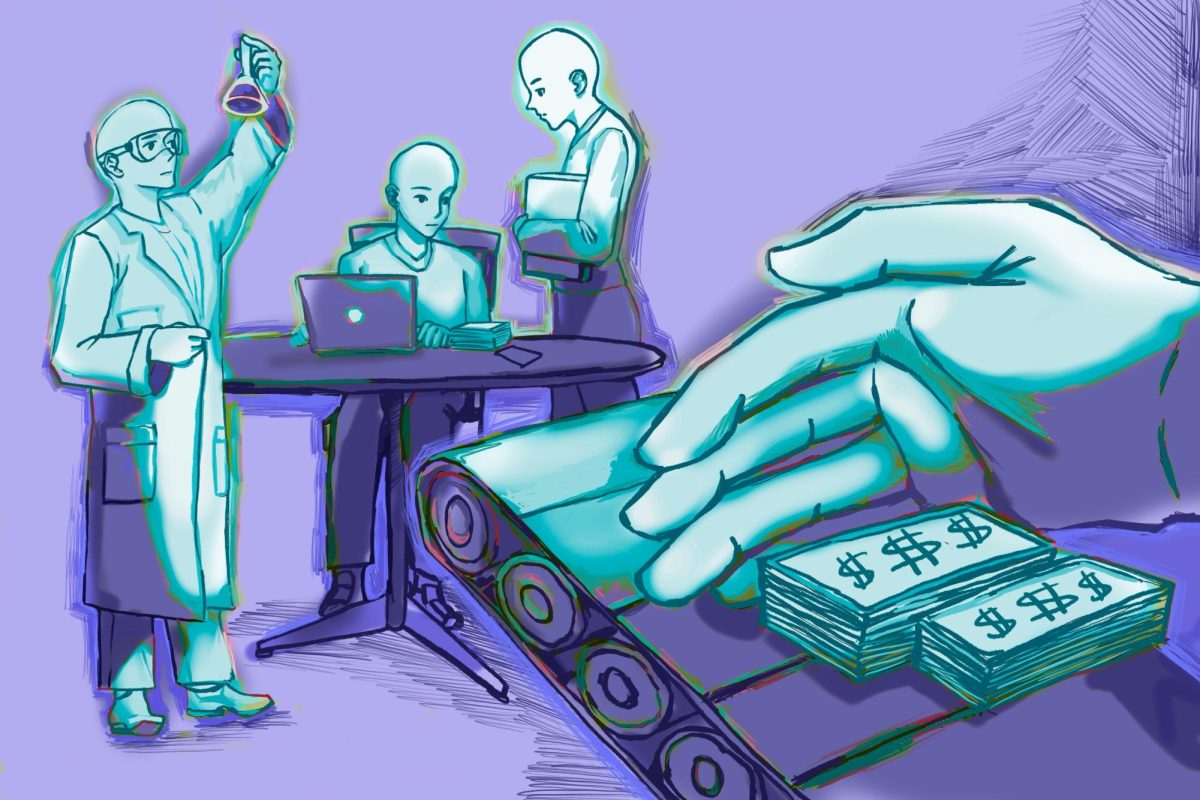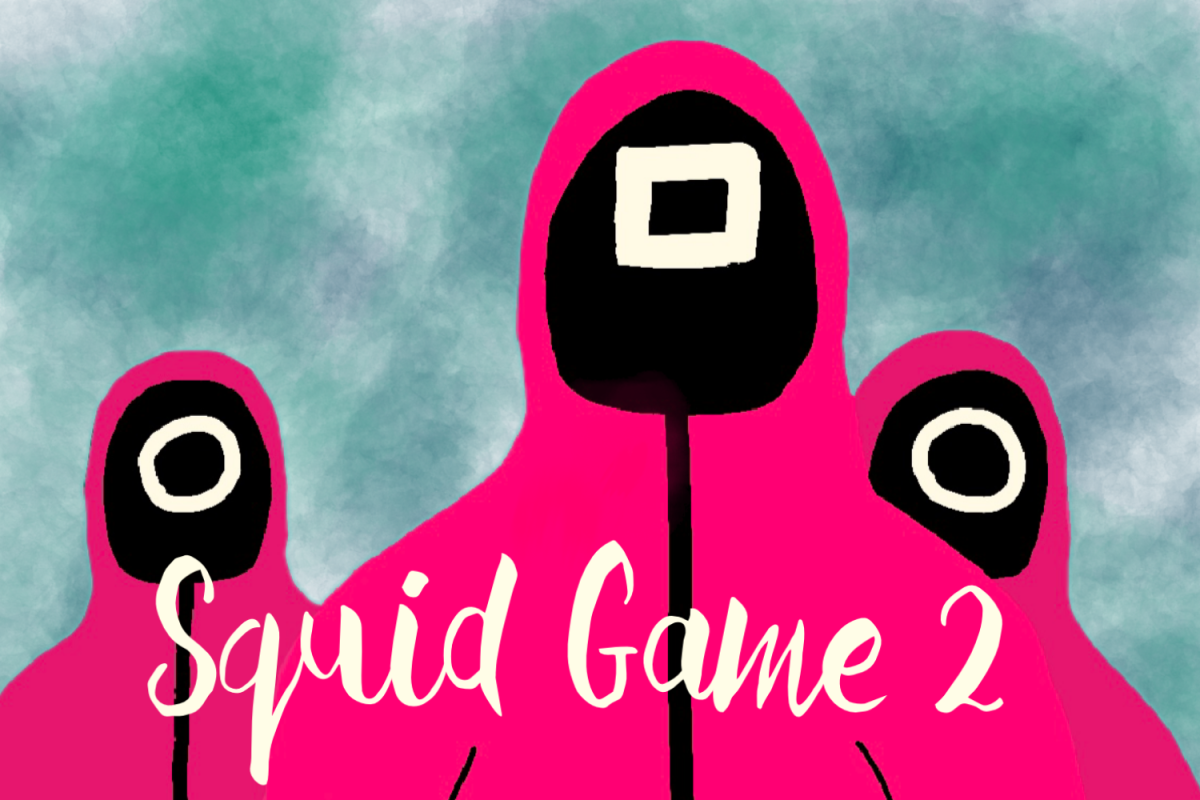“Player 456, welcome back to the game.”
The words directed at returning protagonist Seong Gi-hun, played by Lee Jung-jae, at the end of the second episode of the second “Squid Game” season land in a manner too familiar to deem startling. Perhaps that is a result of the reappearance of figures like the enigmatic Front Man or the golden piggy bank — now repurposed as a chilling communication device — inside the limo where Gi-hun starts to drift off. Whichever it is, one thing is clear: when designing the newest season, the producers of the second season of “Squid Game” were not ready to part with the multimillion-dollar franchise that propelled its first season to global success.
A sequel to the first season of 2021 South Korean thriller “Squid Game,” the second season returns viewers to the ruthless, dystopian-like land we were previously introduced to. Desperate contestants are enticed by the promise of unimaginable wealth in the face of victory, while failure costs their lives. Though the new season introduces numerous new cast members, many characters echo familiar archetypes to the last season, driven by greed, desperation and survival instincts. What truly sets this season apart, however, is the evolution of Gi-hun. No longer a passive participant, he returns with a singular, radical mission: to dismantle the very system that thrives on human suffering.
In addition to Gi-hun’s revenge storyline, he is not alone in his mission to stop the games. Hwang Jun-ho, the undercover cop from the first season played by Wi Ha-joon, returns, teaming up with Gi-hun and a gang of desperate loan sharks hoping to gain financial stability. While merging these storylines certainly had potential, what initially came off as dynamic pivoted into what felt like a drawn-out season special rather than a seamless continuation. When Jun-ho’s group separated from Gi-hun upon his return to the Squid Game, their storyline was drowned out by a superfluous subplot, leaving it to fade without much development.
Nonetheless, the season’s lighting and visual effects were nothing short of masterful, seamlessly heightening the show’s gripping tension. The bold interplay of colors — be it red hues or stark shadows — pulls viewers in, making many moments feel both urgent and alive. The unsettling realism of the gore, from the blood splattered on walls to the grotesque elimination of players, is amplified by precise visuals, adding to the season’s horror in a perfectly visceral manner. Given the cutting-edge technology used, it’s a shame the show’s visual feats were unmatched by an equally compelling storyline. Being a second season, much like many movie sequels, I was quick to deem the season’s objective as a continuation of the previous story. After all, it is a sequel, right? I was mistaken. Rather than offering fresh plotlines that built on the original, the season felt drawn out and redundant.
The pacing, too, felt uneven. While there are moments that spark intrigue, many scenes drag on unnecessarily, sapping the tension that made the first season so gripping. Many plot features were introduced without fully delving into the layers of complexity behind them, leaving the storylines to fall short.
Take, for example, the storyline of Kang No-eul, a North Korean defector working at a fair, who is eventually recruited to work at the Squid Game, operating machinery to eliminate losing players. While I found myself drawn to her plotline — captivated by a raw, vulnerable portrayal of emotion — those feelings were soon overshadowed by disarray. Her character arc, beginning with promise, ultimately fizzles out, and, much like several others in the show, is left unresolved. While one might expect such an ending to serve as a cliffhanger, after over seven hours of screen time, it feels arcane not to take the time to flesh out such an engrossing storyline with more closure. We see flashes of genuine emotion — her longing for her missing daughter and quiet sympathy for a little girl at the fair — but her story moves on too quickly, leaving little time to fully absorb the gravity of her situation. The depth that was so carefully established early on is abruptly sidelined, unjustly portraying her struggles to come off as a simple afterthought.
Regardless, dismissing the detailed moral layers embedded in the second season would be unjust. Greed is depicted through various lenses, such as a fallout from failed crypto assets to failed businesses. A notable new addition — a consent form guiding participants through a list of their rights — presents a voting round after each game upon player request: participants can split the prize money equally and leave by pressing O or permit the games to continue by pressing X. This twist deepens the show’s reflection of real-life decisions, accentuating how far individuals will go when money is on the line, and much like episode five’s title, what they will do for just “One More Game.”
What makes the voting process so intriguing is the individual stories shared with Gi-hun as he attempts to convince others to quit the games. The show reveals that survival is about more than sheer money — it is about the burdens people carry, the sacrifices they make and the lengths they go to protect those they love. Ultimately, it forces viewers to confront the harsh reality of desperation and the hard choices people make when faced with seemingly impossible circumstances.
Though the second season of “Squid Game” may not be Netflix’s typical sequel, it still offers a worthwhile binge. Despite its lack of an ending, the series presents enough gripping twists to maintain suitable viewer engagement. Leaving many threads unresolved and questions unanswered, the new season sets the stage well for a third one that will hopefully offer the resolution that many fans, myself included, are craving.
This story was originally published on The Standard on January 9, 2025.




































